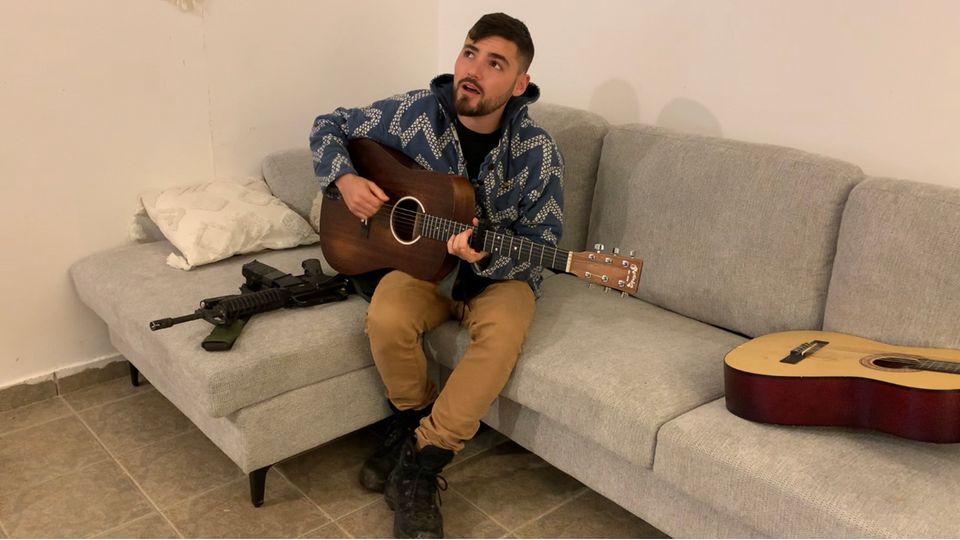An Arab student questions her friendships. A radio presenter plays song requests from soldiers. A student longs to return to his kibbutz. A musician leaves the house with a guitar and a gun. October 7th is firmly anchored in the everyday lives of young Israelis – four stories.
Table of contents
Omri Goren, 28, reservist, Jerusalem
Next to Omri Goren’s house, sheep huddle together in a barn. Spring in the mountains around Jerusalem is cool, the rainy season has filled the streams. “The silence here,” says the 28-year-old, “is like therapy.” The door to Omri’s house is open and the smell of wool and straw wafts in. The young man puts on the hood of his wool sweater and places the guitar on his lap. He plucks the first chords, then sings in Hebrew: “It’s medicine for the heart. Thousands of sweet melodies that you’ll never forget. Melodies of joy. And tomorrow you’ll return home.” Otherwise it is his comrades in Gaza who sing the melody between the verses with him, leileilei, with deep voices in the choir. Omri shows the videos of himself and the soldiers on his cell phone. But now Omri is one of those who have returned home like in his song. Even if only for four weeks of leave from the front. Only his girlfriend quietly joins in the melody that Omri composed himself.

Omri Goren at home in Jerusalem. The 28-year-old is a singer and has been deployed as a reservist in the army since October 7th. Machine guns and guitars are his constant companions
© Katharina Kunert
Omri Goren has been composing songs about love and his faith for years. Singing is his job, he actually travels from concert to concert, in between he stands in the recording studio, recording songs or writing new ones. He has been part of the army again as a reservist for four months. His new songs are about war. “Many of my songs were written in Gaza,” says Omri. There he is deployed to rescue injured and dead soldiers. And sees things he didn’t even know from his time in a combat brigade.
“I found a soldier whose head was missing. His body was torn apart. I had to find all the body parts and bring them home so that he could be buried with dignity. And so that he could even be identified.”

